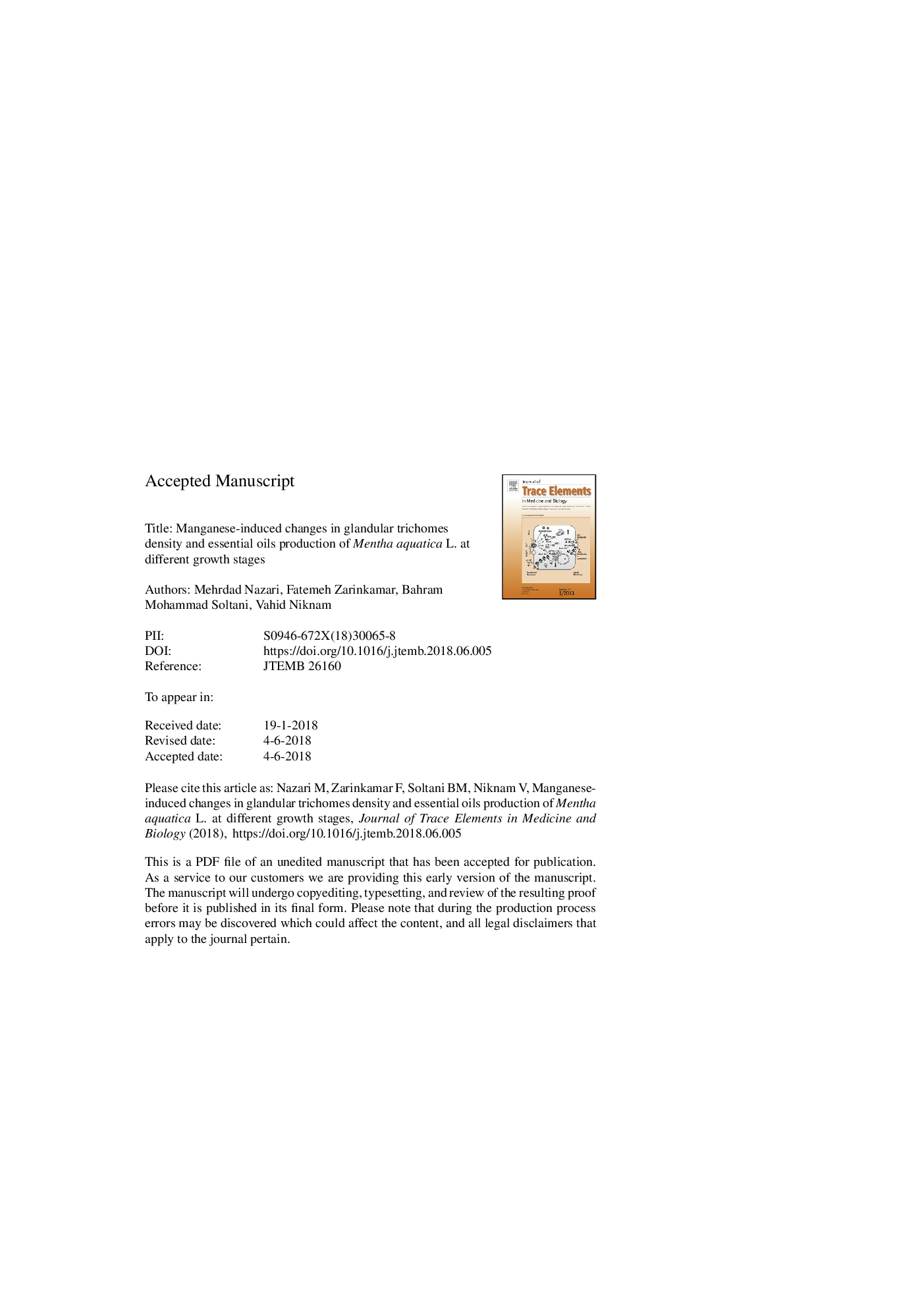| Article ID | Journal | Published Year | Pages | File Type |
|---|---|---|---|---|
| 7638517 | Journal of Trace Elements in Medicine and Biology | 2018 | 26 Pages |
Abstract
Production and accumulation of essential oils in plants are influenced by intrinsic and environmental factors. Here, we attempted to elucidate the effect of manganese (Mn) supply on the density of glandular trichomes and the production of essential oils in Mentha aquatica (water mint; syn. Mentha hirsuta Huds.) at the different growth stages. To this aim, plants were treated with 100â¯Î¼M of Mn (supplied as MnSO4·H2O) at early and late vegetative stages of growth. Then, the control and treated plants were harvested, and biochemical, morphological and molecular analyses indicated that Mn supply has affected M. aquatica at the different growth stages. The biomass, Mn accumulation, glandular trichomes density, essential oils yield and expression levels of the genes encoding enzymes involved in terpenoid biosynthesis pathway (1-Deoxy d-xylulose-5-phosphate synthase (Dxs), geranyl diphosphate synthase (Gpps), isopentenyl diphosphate isomerase (Ippi), β-caryophyllene synthase (Cps), limonene synthase (Ls) and menthofuran synthase (Mfs)) were increased by Mn supply at both growth stages. However, the increased rates of the assayed parameters were varied between the early and late vegetative stages. Moreover, the content and chemical composition of terpenoid components were affected by Mn supply and plant growth stage. There were positive and weak correlations among the study variables under the Mn supply at the different growth stages. Given these findings, we propose that the application of Mn supply at both early and late vegetative stages elevates the growth, density of glandular trichomes and production of essential oils in M. aquatica.
Related Topics
Physical Sciences and Engineering
Chemistry
Analytical Chemistry
Authors
Mehrdad Nazari, Fatemeh Zarinkamar, Bahram Mohammad Soltani, Vahid Niknam,
